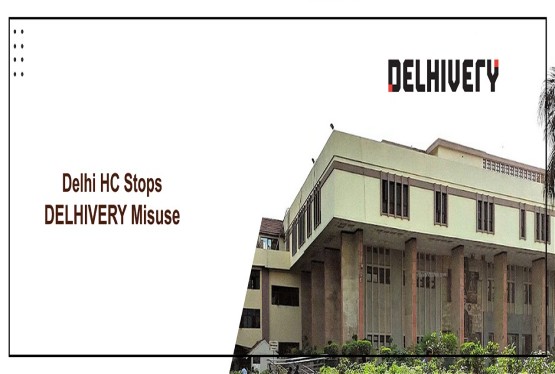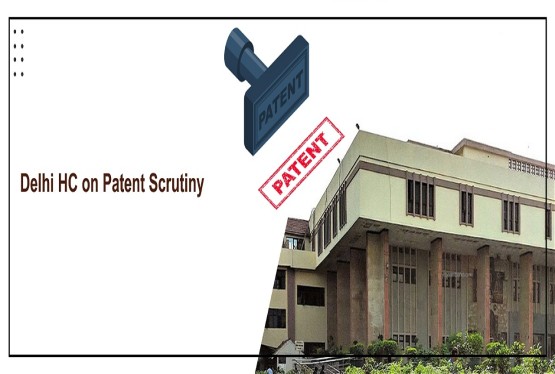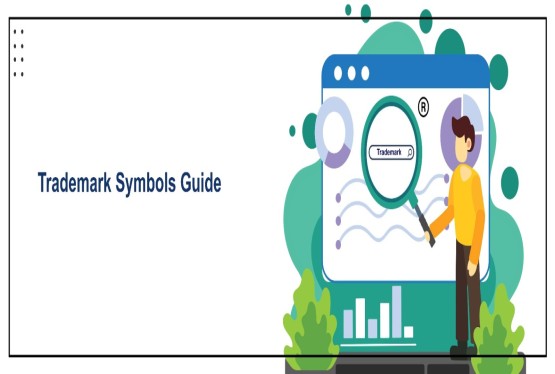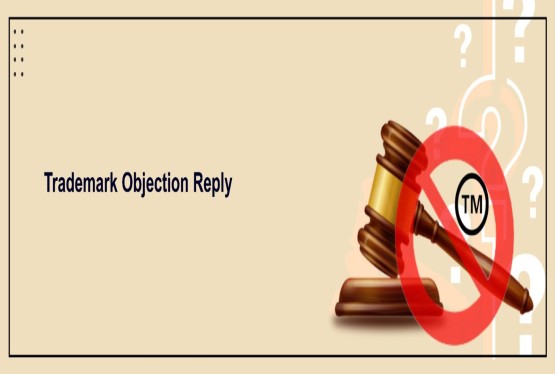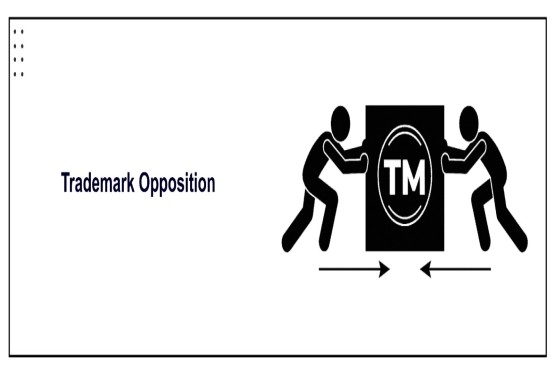In a recent ruling, the Delhi High Court, presided over by Justice Manmeet Pritam Singh Arora, extended ex-parte ad-interim protection to Haveli Restaurant and Resorts Ltd. in a trademark infringement and passing-off action filed against Adison Resorts Ltd., the entity operating under the name “Punjabi Haveli.” The Court acknowledged that Haveli had successfully established a prima facie case demonstrating long-standing use, reputation, and goodwill associated with its mark “HAVELI.” Recognizing the likelihood of consumer confusion arising from the defendant’s use of a deceptively similar name and trade dress, the Court granted immediate relief to prevent further damage to Haveli’s brand identity and commercial reputation. This order marks an important step in protecting established hospitality brands from imitation and reinforces the judiciary’s proactive approach toward trademark enforcement in the food and restaurant sector.
Background of the Dispute
The conflict between Haveli Restaurant and Resorts Ltd. and Adison Resorts Ltd., operating under the name “Punjabi Haveli,” stems from allegations of unauthorized use of a deceptively similar trademark and overall brand presentation. Haveli, a reputed and long-standing restaurant chain in North India, claimed that it has been continuously using the trademark “HAVELI” since 2001 for its hospitality and food services. Over the years, the brand has become synonymous with traditional North Indian dining experiences, earning substantial goodwill, customer trust, and market recognition.
In contrast, the defendant, Punjabi Haveli, based in Ludhiana, Punjab, applied for Trademark registration of the mark “PUNJABI HAVELI” in July 2023 on a proposed-to-be-used basis under Class 43, which covers services related to food, beverages, and temporary accommodation. The key point of contention raised by the plaintiff was that the defendant deliberately emphasized the word “Haveli” in its branding—placing “Punjabi” in a smaller font—making the mark visually and phonetically similar to the established HAVELI mark.
Haveli further alleged that the imitation extended beyond the name itself. According to the plaintiff, the defendant copied critical aspects of Haveli’s trade dress and visual identity, such as its signature red-and-white colour combination, distinctive font style, restaurant décor, and traditional architectural theme, all of which contribute to the brand’s recognizable image. The plaintiff argued that such replication was an intentional attempt to mislead customers and exploit the reputation built by Haveli over two decades.
Interestingly, the dispute appears to have its roots in an earlier interaction between the parties. As per the plaintiff, in 2021, representatives of Haveli and Punjabi Haveli engaged in discussions regarding a potential collaboration or franchise arrangement. During these preliminary talks, Haveli allegedly shared business concepts, branding details, and operational insights. However, the discussions never matured into a formal agreement. Haveli claims that soon after these meetings, the defendant launched its own establishment using nearly identical branding elements, thereby engaging in unfair competition and passing off under the guise of association with the original Haveli chain.
The background, therefore, highlights a classic case of brand imitation where prior interactions and access to confidential business elements allegedly led to the adoption of a similar mark and overall trade identity by a competing entity.
The Court’s Decision & Interim Directions
After thoroughly reviewing the pleadings, supporting documents, and initial evidence presented by Haveli Restaurant and Resorts Ltd., the Delhi High Court determined that the plaintiff had successfully established a strong prima facie case of trademark infringement and passing off. The Court observed that the defendant’s use of the mark “Punjabi Haveli” bore a striking resemblance—both visually and phonetically—to the plaintiff’s well-known “Haveli” mark and its distinctive trade dress. Such similarity, the Court noted, was likely to mislead the public into believing that the two establishments were connected or affiliated, thereby causing potential harm to the plaintiff’s established goodwill.
The Court further emphasized that the balance of convenience lay heavily in favour of Haveli, as the continued use of the impugned mark by the defendant could lead to irreparable injury to the plaintiff’s reputation, brand value, and long-standing business identity. It reasoned that monetary compensation alone would not suffice to repair the loss of consumer trust or dilution of brand distinctiveness that might result from unchecked imitation. In addition, the Court stressed that protecting consumers from confusion or deception serves the broader public interest, as customers deserve clarity about the origin and authenticity of the goods or services they choose.
Accordingly, the Court issued a series of interim directions designed to safeguard the plaintiff’s rights pending final adjudication of the suit:
-
The defendants, including their proprietors, partners, agents, distributors, and any affiliated entities, were restrained from using the trademark “Punjabi Haveli” or any other mark deceptively similar to “Haveli” in relation to food, hospitality, or related services.
-
The defendants were ordered to remove all physical and digital representations of the infringing mark—such as hoardings, signage, menu boards, advertisements, social media handles, and listings on third-party platforms—within one week of receiving the Court’s order.
-
The Court also provided that in the event of non-compliance, a Local Commissioner would be appointed to visit the defendants’ premises to verify adherence to the order and report back to the Court.
-
To facilitate further proceedings, the matter was scheduled before the Joint Registrar on 26 September 2025 for completion of pleadings, and before the main bench on 17 February 2026 for further hearing and review.
Relevant Legal Provisions Cited
|
Provision |
Description |
|
Section 27(2) |
Recognises the common law right of action for passing off against deceptive use of an unregistered mark. |
|
Section 28(1) |
Confers exclusive rights on a registered proprietor to use the mark in relation to specify goods/services. |
|
Section 29(1), (2) |
Defines infringement where a mark identical or deceptively similar is used for identical/similar goods or services. |
|
Section 134(1)(c) |
Empowers the District or High Court to try infringement and passing-off suits. |
|
Section 135(1) |
Allows courts to grant injunctions and other equitable relief such as damages or account of profits. |
|
Rule 124 |
Allows courts to grant injunctions and other equitable relief such as damages or account of profits. |
Case Law References
In Glaxo Group Limited v. Qpharm Health Care Limited (Delhi High Court, 3 July 2024), the Court restrained Qpharm from using a deceptively similar trade dress to Glaxo’s established brand — reinforcing that trade dress imitation can ground an injunction.
In Crocs Inc. USA v. Bata India & Ors. (Delhi High Court Division Bench, 1 July 2025), the Court revived passing off suits based on shape/trade dress, holding that common law rights subsist alongside statutory design rights.
In Satyam Infoway Ltd. v. Sifynet Solutions Pvt. Ltd. ([2004] SC), the Supreme Court held that domain names may be treated as trademarks and subject to passing-off rules — illustrating how online presence is part of the trademark landscape.
In Senior User v. Junior User – Delhi High Court (Lexology note) the court reaffirmed that a prior user may restrict subsequent adopters of similar marks even without registration.
In No Deceptive Similarity – JANGID v. JANGEER (Delhi High Court, March 2025) the Court held that bona fide use of a surname could not be restrained when there was no deceptive similarity — highlighting the boundary of passing off claims.
Significance and Takeaways
Protection of Goodwill and Prior Use
The Delhi High Court’s order reinforces a key principle of trademark jurisprudence — the rights of a prior user override those of subsequent adopters, even when formal registration may still be pending. Continuous, uninterrupted, and honest use of a mark, coupled with strong consumer association, grants the proprietor superior rights under Indian law. In this case, Haveli’s consistent use of the “HAVELI” mark since 2001 and its established presence across multiple locations in North India played a crucial role in convincing the Court that the brand had earned distinct recognition and trust among consumers. This long-standing goodwill became the foundation for granting interim relief.
Broader Scope of Protection — Trade Dress and Brand Identity
The judgment goes beyond the protection of the word mark alone and expands to the concept of trade dress, which includes the visual and aesthetic elements of branding such as colour combinations, typography, interior décor, and thematic presentation. The Court observed that Punjabi Haveli’s use of a nearly identical colour palette, design style, and the emphasis on the word “Haveli” (while minimizing “Punjabi”) was not coincidental but a deliberate attempt to capitalize on Haveli’s established image. This finding underscores that trademark protection is holistic, covering both textual and non-textual elements that contribute to a brand’s distinctiveness.
Inclusion of Digital Platforms in Brand Enforcement
An important feature of this order is the recognition of the digital dimension of infringement. The Court’s directive extended beyond physical stores and signage to cover social media accounts, digital advertisements, and third-party listings such as restaurant aggregators or online directories. By mandating the removal of infringing listings from all online platforms, the Court acknowledged the reality that brand confusion in the digital space can be as damaging as physical misrepresentation. This signals a progressive approach where online visibility is treated as an integral component of trademark protection.
Swift Judicial Intervention through Interim Relief
The ex-parte nature of the injunction reflects the judiciary’s increasing readiness to act swiftly in safeguarding brand reputation when a clear prima facie case and immediate threat of harm are established. The Court recognized that delay in granting relief could have caused irreversible damage to Haveli’s goodwill, which could not be adequately compensated by monetary remedies. The order demonstrates that speed and decisiveness are critical when addressing infringement that threatens the identity of a well-known brand.
Enforcement Mechanism via Local Commissioner
By allowing the appointment of a Local Commissioner in the event of non-compliance, the Court ensured that its directions would not remain merely on paper. The provision for physical inspection and verification of compliance highlights the seriousness of judicial enforcement in trademark matters. It serves as a warning to potential infringers that the Court will not hesitate to employ supervisory mechanisms to ensure adherence to its orders.
Implications for Brands and the Hospitality Industry
-
Prior Use Holds Paramount Importance: Businesses, especially in the hospitality sector, must maintain records demonstrating the duration and extent of their brand’s use, as this can provide stronger protection than registration alone.
-
Avoid Descriptive or Imitative Branding: Entrepreneurs and new entrants should exercise due diligence before adopting names or visual elements that resemble those of established players in the same market, particularly when operating in close geographic proximity.
-
Visual Identity as Legal Property: Restaurants, hotels, and cafés should recognize that their décor, ambience, and presentation form part of their brand equity. Copying these features can lead to liability for passing off even if the word mark differs slightly.
-
Digital Vigilance is Essential: Brand owners must regularly monitor online spaces — including Google listings, Swiggy, Zomato, and social media pages — for unauthorized use of their marks. Courts now treat these virtual presences as extensions of the business identity.
-
Evidence Strengthens Legal Claims: Maintaining an archive of advertisements, sales figures, customer testimonials, and screenshots of infringing content helps demonstrate both goodwill and consumer confusion, strengthening the case for interim protection.
Conclusion
The Delhi High Court’s decision in favour of Haveli Restaurant and Resorts Ltd. stands as a significant affirmation of the judiciary’s commitment to protecting established brands from imitation and unfair competition. The order sends a clear message that the Indian legal system recognizes the immense value of brand reputation, visual identity, and customer trust that businesses build over time—particularly in consumer-facing sectors like hospitality, where brand familiarity plays a decisive role in consumer choice. By granting interim relief at an early stage, the Court underscored that it will not allow opportunistic entities to misappropriate the goodwill or aesthetic identity painstakingly developed by another. The ruling also demonstrates that trademark protection extends beyond the mere word mark—it encompasses the entire trade dress, including logos, colour schemes, décor, and even the digital footprint of a business. The Court’s direction to take down both physical and digital infringing materials, such as signboards, advertisements, social media pages, and online listings, reflects a modern and comprehensive understanding of brand protection in the digital era. It recognizes that infringement today occurs not only at storefronts but also across online spaces where visibility and consumer perception are formed. In essence, this case reinforces a crucial legal principle: authenticity, continuity, and originality remain the cornerstones of brand ownership. When these elements are threatened by imitation or deceptive similarity, the courts will intervene swiftly to safeguard the rightful owner’s interests and to preserve consumer confidence in genuine brands.
Frequently Asked Questions (FAQs)
Q1. What was the core issue in the Haveli vs. Punjabi Haveli dispute?
Ans. The primary issue was whether Punjabi Haveli’s use of the mark “Punjabi Haveli” and a similar trade dress (colour scheme, décor, font, and overall look) amounted to trademark infringement and passing off of Haveli Restaurant and Resorts Ltd.’s earlier and well-established mark “HAVELI” used for restaurant and hospitality services.
Q2. Why did the Delhi High Court grant ex-parte ad-interim relief?
Ans. The Court found that Haveli had shown a strong prima facie case, long-standing use since 2001, and substantial goodwill in the mark “HAVELI.” It also noted the likelihood of consumer confusion and the risk of irreparable harm to Haveli’s reputation if the defendant continued using the impugned mark. Because delay could worsen the damage, urgent ex-parte relief was granted.
Q3. What is the legal significance of being a “prior user” in trademark law?Ans. Under Indian law, particularly Sections 27 and 34 of the Trade Marks Act, prior use often trumps later registration. A party that has used a mark continuously and honestly over time can restrain a subsequent adopter of a deceptively similar mark, even if the prior user’s mark is not yet registered, through a passing-off action.
Q4. What is ‘trade dress’ and how did it matter in this case?
Ans. Trade dress refers to the overall visual appearance of a brand — including colours, fonts, layout, décor, packaging and ambience — that makes it distinctive. In this case, Haveli alleged that Punjabi Haveli copied its red-and-white theme, font style, restaurant décor, and traditional look, which the Court treated as part of Haveli’s protectable brand identity while assessing deceptive similarity.
Q5. Is trademark registration mandatory to file such a case?
Ans. No. While registration gives statutory rights under Sections 28 and 29, a proprietor can still sue for passing off under Section 27(2) based on prior use and goodwill. In the Haveli case, the action involved both infringement (for registered rights, if any) and passing off (based on reputation and prior use).
Q6. Why did the Court also target online listings and social media pages?
Ans. The Court recognised that infringement today is not limited to physical signage. Customers often discover restaurants through Google listings, food aggregators, and social media, so misleading use of a similar mark online can seriously affect brand reputation. Therefore, the injunction expressly required removal of infringing content from digital platforms as well as physical sites.
Q7. What role does the Local Commissioner play in such cases?
Ans. A Local Commissioner acts as the Court’s eyes and ears. If the defendant does not comply with the injunction, the Commissioner can visit the premises, inspect signages, take photographs, and verify whether the infringing mark is still in use. This ensures that the Court’s orders are effectively enforced and not ignored in practice.
Q8. Can Haveli later claim damages apart from the injunction?
Ans. Yes. The present order is interim in nature. At the final stage, the Court may, under Section 135 of the Trade Marks Act, award damages, rendition of accounts, or other monetary reliefs if it concludes that the defendant wrongfully exploited Haveli’s goodwill and caused commercial loss.
Q10. What lessons does this case offer to new restaurants choosing a brand name?
Ans. New entrants should avoid names, logos, or décor that are close to well-known or established brands, especially in the same region or service category. Due diligence — including trademark searches, online checks, and legal review — is essential before adopting a name. Copying another restaurant’s identity can lead to costly litigation and forced rebranding.
Q11. How does this judgment impact the wider hospitality and service industry?
Ans. The decision sends a strong signal that courts will actively protect established hospitality brands against imitation, including trade dress copying and online misuse. It encourages genuine brands to document their use and goodwill, and warns imitators that even early-stage copying can attract swift injunctions, reputational damage, and potential financial liability.






























_(b)_of_the_Trademark_Act,_1999_(1)_crop10_thumb.jpg)



_crop10_thumb.jpg)




























_crop10_thumb.jpg)
_crop10_thumb.jpg)






_crop10_thumb.jpg)








_crop10_thumb.jpg)



_crop10_thumb.jpg)





























_crop10_thumb.jpg)

















_crop10_thumb.jpg)






_crop10_thumb.jpg)












































































































































_crop10_thumb.jpg)




































_crop10_thumb.jpg)












_crop10_thumb.jpg)















































_crop10_thumb.jpg)

































































































